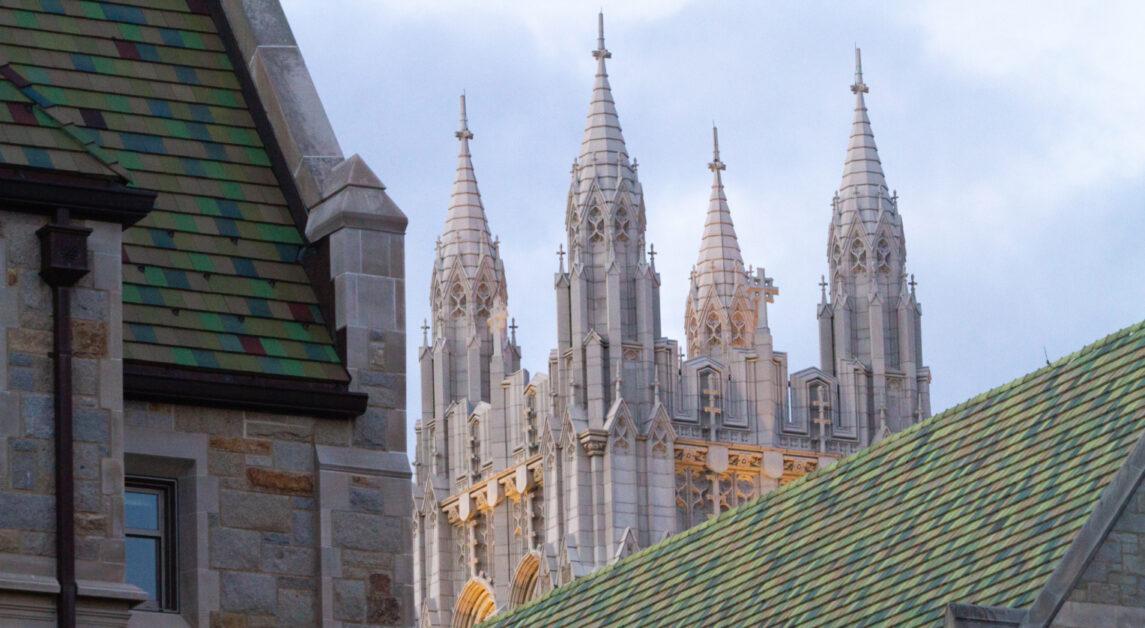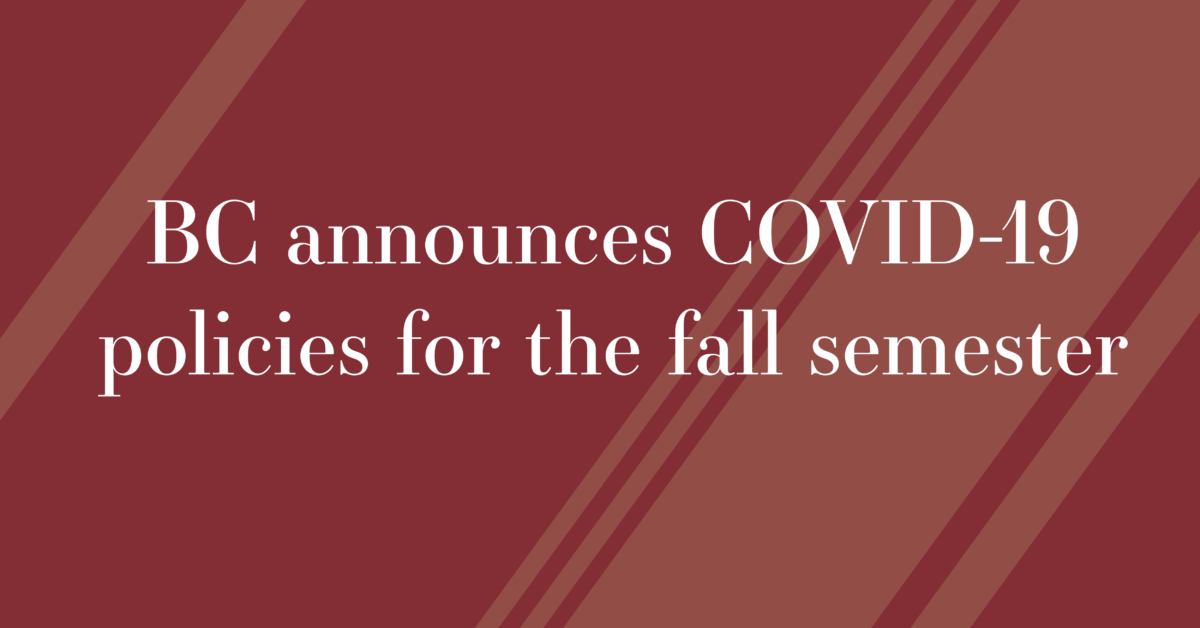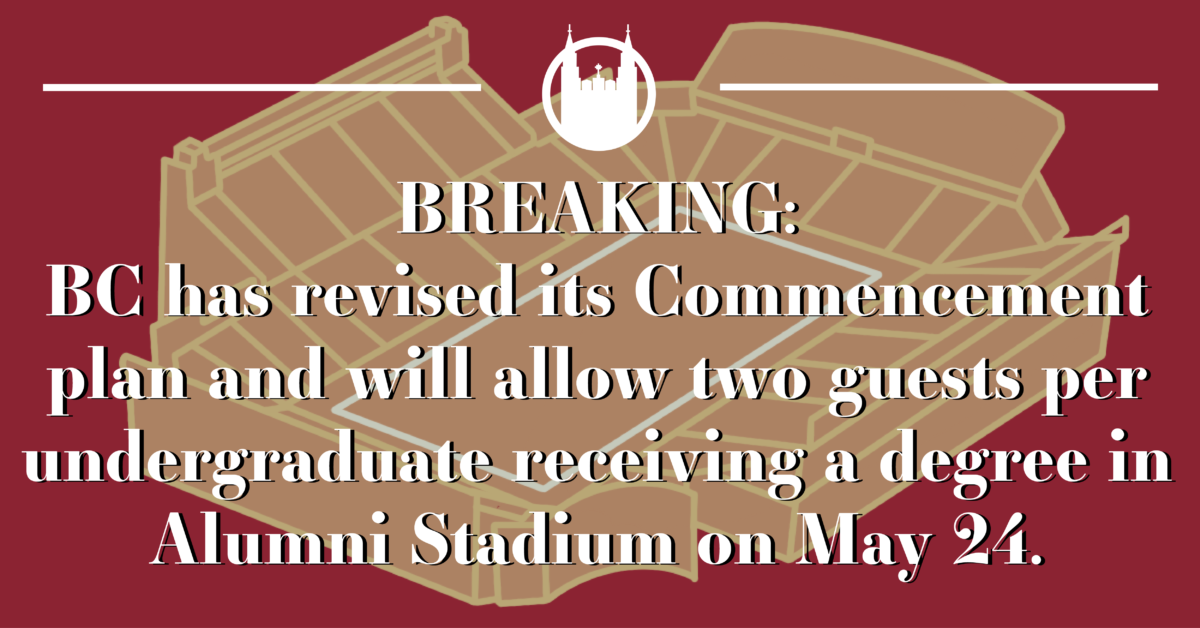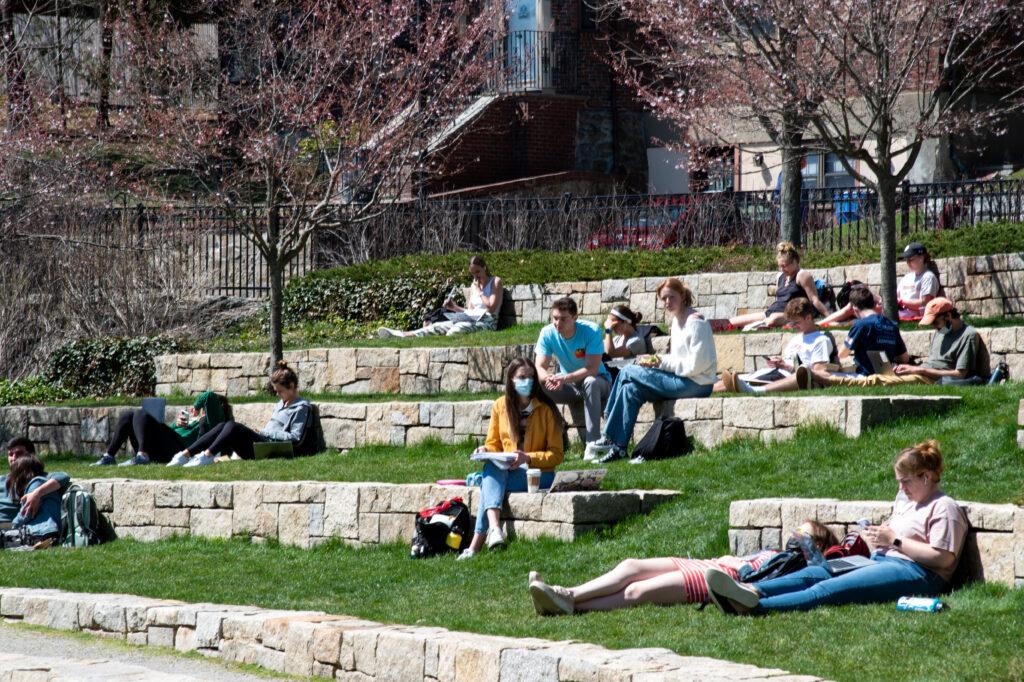By the time high school senior Alex Park found out he had been accepted into Boston College, it was already too late for him to visit. The Office of Undergraduate Admission announced on March 11—the same day BC announced it was moving courses online—that it was suspending all campus visits due to the COVID-19 pandemic. But BC’s Regular Decision applicants didn’t receive their decisions until March 19.
Along with other seniors who were waiting to hear their admission status before making the trip to Chestnut Hill, Park would have to decide whether to commit to BC without ever setting foot there.
“It was really confusing, and sometimes I’d just lay at night wondering, ‘Oh May 1 is coming up, and I need to make a decision soon,’” Park said. “But most of the schools that I got accepted to and wanted to go to, I didn’t get to see because of this whole thing.”
Several colleges, including Emerson College, Williams College, and the University of Massachusetts Boston, have chosen to delay the typical May 1 deadline for admissions deposits this year. Others, including BC, have kept May 1 as the deadline for students to submit their enrollment commitment.
The primary reason BC chose not to push back the deadline was that it would delay certain processes that normally take place after May 1, such as admitting students off the waiting list and holding Orientation, according to Vice Provost for Enrollment Management John Mahoney.
“We’re all hopeful that this is going to subside and that we’re gonna be able to return to normal operations in the fall, and that would not have been possible if we just pushed everything back,” Mahoney said.
BC will consider extensions past the May 1 deadline on a case-by-case basis if the University is unable to provide a student’s financial aid award by May 1, or if a student faces extraordinary circumstances. Mahoney said that this policy has always been in place, although the need for it has been compounded this year.
“We’ve dealt with some real sad stories with people who’ve lost jobs or there’s impending job loss,” Mahoney said. “As much as we possibly can as an institution, we’re trying to work with those families.”
Mahoney said that in March the University had to quickly pivot its focus from on-campus programming and in-person receptions across the country to virtual admissions programming. While some prospective students will be unable to confirm their college choices with a campus visit, Mahoney said that BC’s virtual programming has still given them the opportunity to engage with current students, faculty, and administrators.
“I have to give all credit to Grant Gosselin, the director of Admission, and his staff because I think they did an absolutely amazing job of just constructing all kinds of great webinars on all topics—academic, extracurricular, social, financial aid,” Mahoney said. “We got alumni across the country to do virtual hangouts on Google or on Zoom with admitted students and parents from those areas.”
Morgan Hunt, a new member of the Class of 2024, said that he relied on information from the school’s webinars and his mom, a BC alumna, in making his choice. Hunt had visited BC during his freshman year of high school, but he said he would have visited again in the first week of April were it not for the pandemic.
While Hunt is considering postponing his enrollment depending on whether in-person classes resume in the fall, he said that making the decision to attend BC wasn’t very difficult for him.
“I guess for me personally it wasn’t too hard. You know, as I started to look into BC, I really liked it,” he said.
Some future Eagles supplemented the University’s official online content with watching student-created YouTube videos. Park said that, while making his decision, he watched BC students’ vlogs about what life is like on campus.
“Obviously, it’s not completely accurate of what it really would be, but it gives me a pretty good outlook on what it really kind of would look like,” he said. “And with that too, I was able to see how the campus looked [and] how students interacted with the campus.”
Other admitted students found themselves reaching out to their social networks to help them make their decisions. Minji Jeun, who visited BC as a high-school freshman but was unable to return after being accepted this spring, said that she was torn between BC and Boston University. She posted on social media asking to be put in contact with people who attend either school.
“[Of] the people that I heard back from, there were a lot of people from BC, and they were really enthusiastic about letting me know their favorite parts about the year and why they were so much better than BU,” said Jeun, who eventually enrolled at BC.
After being accepted into the Options Through Education program, Jonah Martinez had to cancel the campus visit he had planned to make in late March. He said he relied on the perspective of a friend, a freshman at BC who was also accepted through the program, in helping him make his decision.
“Having someone that I know on a personal level talk to me, it just really moved [BC] up on the list, and it just made me visualize where I could really see myself compared to the other schools,” Martinez said. “And I just felt that I could see myself being more successful and having more opportunities at BC.”
Mahoney said he has empathy for high school seniors, who have been pushed to remote learning, isolated from friends and activities, and lost the opportunities to attend proms or even graduation ceremonies.
“Everybody is dealing with such disruption that this is one thing that—admittedly, it’s under somewhat adverse circumstances—but this is one thing they can do. They can make up their mind about where they’re going to go to college next year,” Mahoney said. “I don’t think they wanted that postponed, as so many other things have been postponed, or some things have been canceled.”
Regardless of when students enroll, every family with an incoming college student is worried about what the future holds for the fall semester, Mahoney said. The questions of if, when, and how students will be able to return to campus are all still up in the air.
“There’s great concern—there’s just no answers. That’s the problem,” Mahoney said. “And so, as families are making their choices, they have to do it with a great deal of uncertainty.”



















